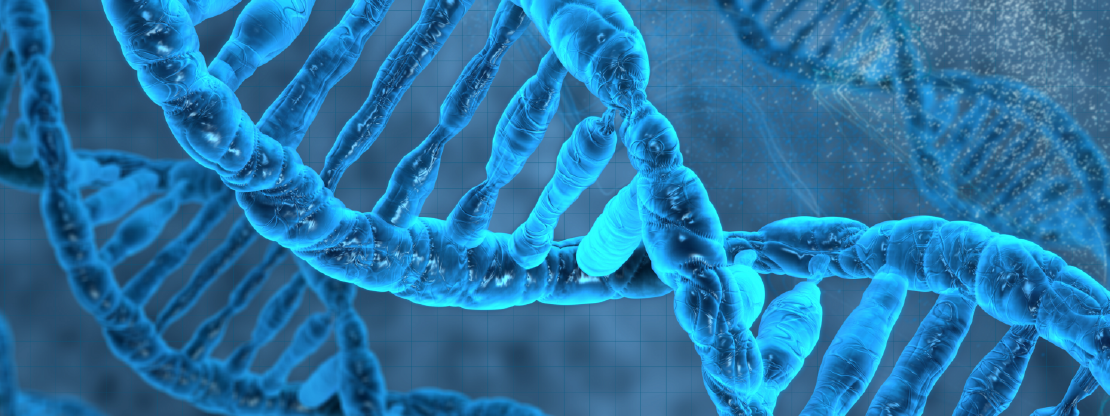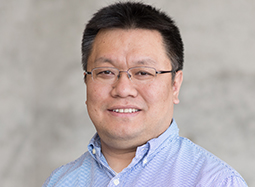Meet the scientist behind the science: Dr. Xiaobing Shi
August 2, 2021

To find ways to better treat cancer, we need to “decode it.”
For Van Andel Institute’s Dr. Xiaobing Shi, that means understanding how the instructions in our DNA are read and carried out through a process called gene expression. So far, his research has led to the discovery of several potential new targets for cancer treatment.
VAI Voice caught up with Dr. Shi to chat about his research, why he became a scientist and some exciting advances from his lab.

Q: What do you study?
Dr. Shi: My lab studies the fundamental question of how genes are regulated in cells. Our genetic information is stored in DNA, which is highly condensed and wrapped around histones in order to fit inside of the nucleus and take part in the formation of chromatin. We are interested in understanding how the histone proteins and chromatin influence the transcription of our genetic information, a fundamental process important for both normal development and diseases.
Q: What are the implications for human health?
Dr. Shi: Our current focus is to understand the role of histones and chromatin in the diagnosis and treatment of human cancers. Compelling evidence suggests that histones and their regulatory factors are frequently mutated in human cancers and are potentially therapeutic targets for treatment of cancer patients.
Q: Why did you become a scientist?
Dr. Shi: I did not plan to be a biological scientist. In junior high and high school, I had broad interests in many subjects: math, physics, history, and even literature and language. However, when I was admitted to Wuhan University, the only option for a major available to me was biology. Nevertheless, I actually enjoyed many classes in college and became fascinated about the mystery of the microworld in cells that we still don’t know much about.
Q: What’s the most surprising thing about your research?
Dr. Shi: The most surprising thing in my research is the discovery of the YEATS domain as a novel family of histone acetylation readers. We sought to look for proteins that can recognize histone methylation and used acetylated histones as negative controls, but unexpectedly discovered new readers for histone acetylation, which became the main focus of my lab’s current research. Acetylation and methylation are modifications on proteins that help determine when and where to work and what to do. Science is like a box of chocolates — you never know what your next exciting discovery will be!
Learn more about Dr. Shi and his research here. Read more interviews with our scientists here.
